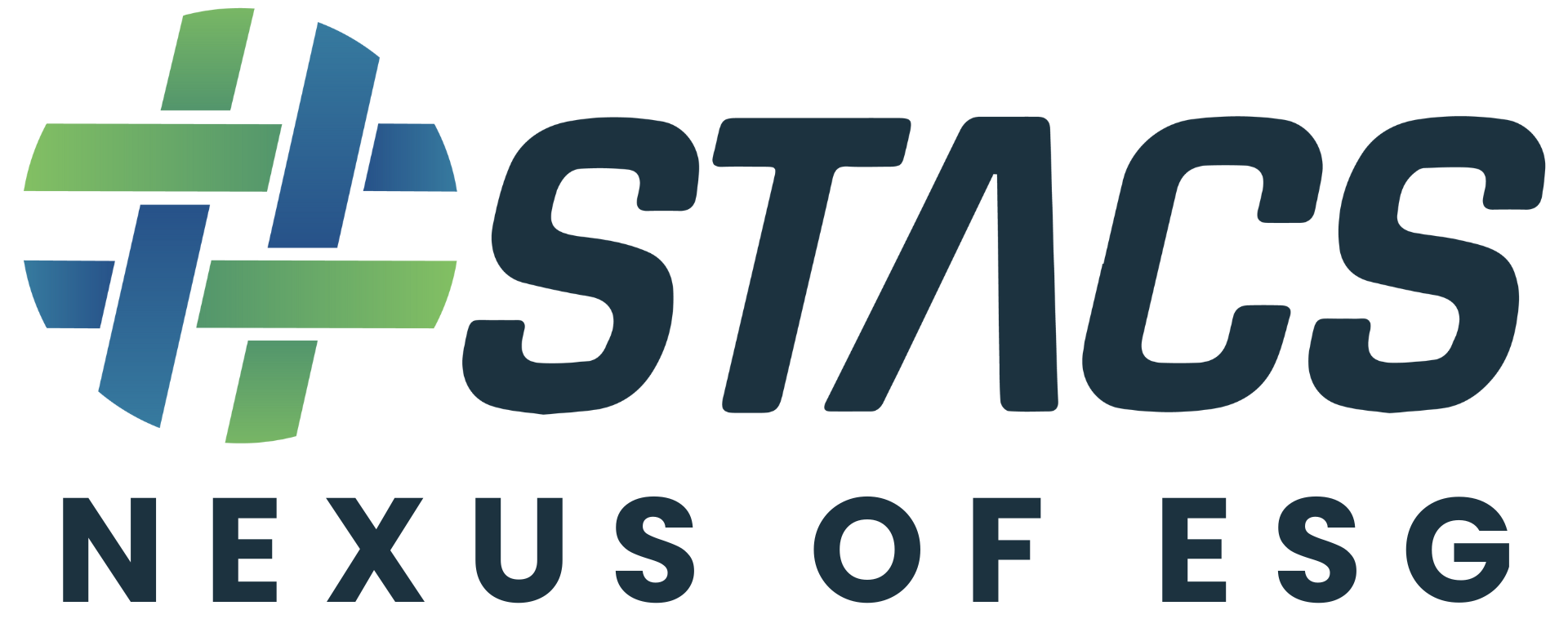One-stop ESG data platform: STACS November ESGpedia Showcase 2023
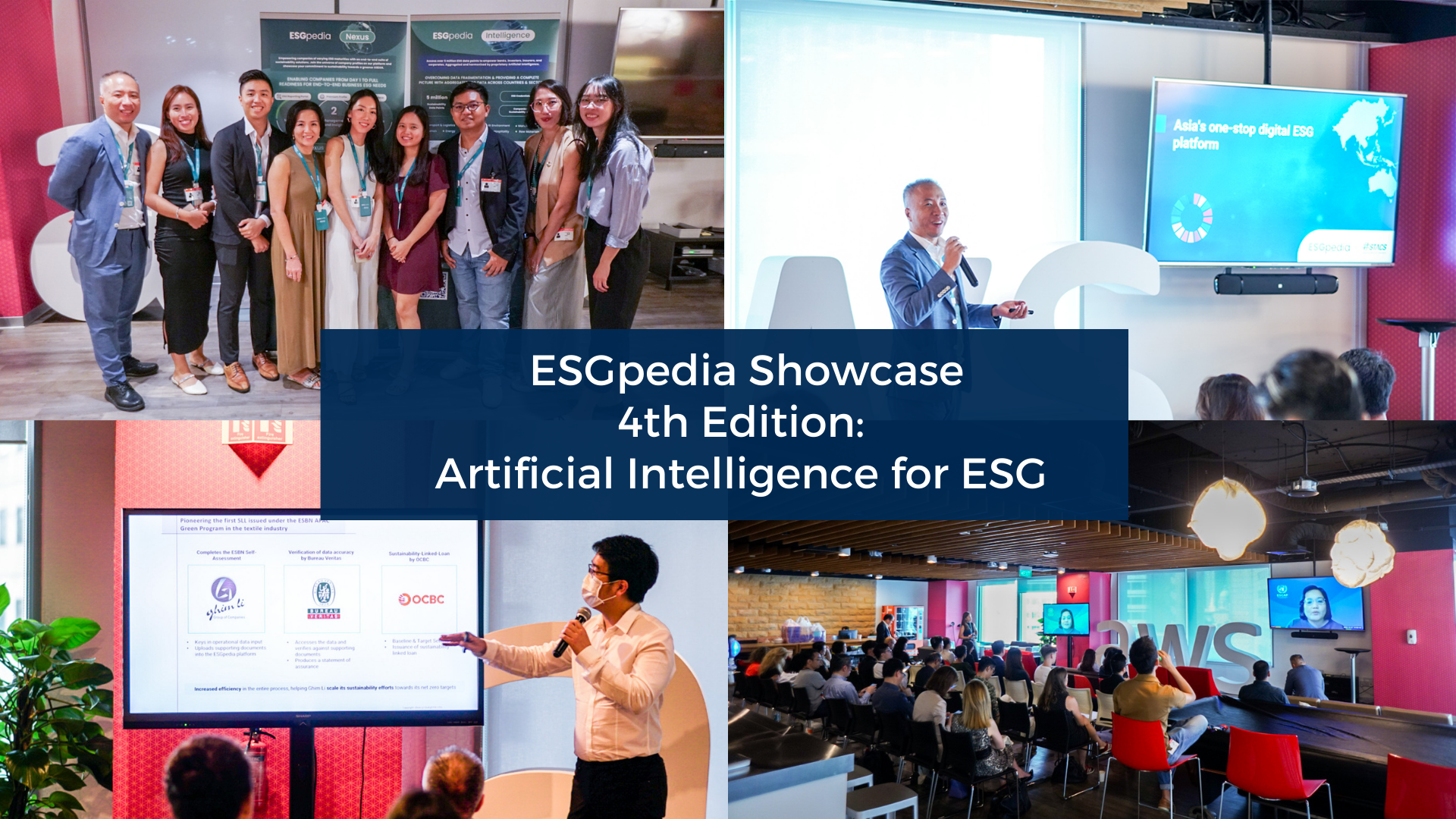
Published 12 January 2024 –
With ASEAN companies facing rising pressures and mounting regulatory environmental, social, and governance (ESG) reporting requirements, it is imperative for businesses to embark on sustainability and leverage on existing ESG data platforms and solutions to be better positioned to manage risks and leverage ESG opportunities in the global supply chain.
At the 4th edition of our flagship semi-annual ESGpedia Showcase, this time themed “Artificial Intelligence for ESG”, we invited our clients and partners from leading financial institutions and corporates in the region as they came together to present live use cases of ESGpedia across various sectors. Our speakers presented to an enthusiastic crowd of over 80 financial institutions and corporate leaders at Amazon Web Services (AWS) (with 100+ more joining us virtually).
In addition, they also shared how ESGpedia, a one-stop ESG platform, is helping them ensure compliance to increasing ESG regulations and succeed in their ESG journey regardless of their maturity.
Managing Director Benjamin Soh also unveiled our enhanced ESGpedia platform with its Artificial Intelligence (AI)-powered engine to provide a dual approach – Nexus and Intelligence – to help plug the ESG data gap in Asia Pacific and empower end-to-end business ESG needs.
We have included opening comments from each speaker/session below along with links to the relevant timestamps in the full event video for those who want to watch sessions in depth.
Opening address by Dr Tientip Subhanij, Chief of Sustainable Business Network, United Nations Economic and Social Commission for Asia and Pacific (UNESCAP)
 “The Asia-Pacific region, the fastest growing region in the world, has a role to play in efforts to tackle climate change. The region is responsible for half of global greenhouse gas emissions, and research by the Economic and Social Commission of Asia and the Pacific has found that GHG emissions in the region in 2021 have nearly doubled compared to 1990. Countries in the region need to decouple economic growth from carbon emissions.
“The Asia-Pacific region, the fastest growing region in the world, has a role to play in efforts to tackle climate change. The region is responsible for half of global greenhouse gas emissions, and research by the Economic and Social Commission of Asia and the Pacific has found that GHG emissions in the region in 2021 have nearly doubled compared to 1990. Countries in the region need to decouple economic growth from carbon emissions.
“At the same time, the region is also vulnerable to the effects of climate change. Incidents of flooding, extreme drought, and typhoons have impacted the lives of many people across the region. Analysis by ESCAP based on the 6th assessment report of the ICCP, has found that under all climate change scenarios and in comparison to global averages, Asia and the Pacific will be most impacted by heavy precipitation followed by agricultural drought, hot temperatures, heatwaves, and warming winds with intensifying tropical cycles.
“The battle against climate change will therefore largely depend on the actions taken by governments, businesses, and societies in the region… ESCAP has worked with STACS, our ESBN member, to launch and initiate the Asia-Pacific Green Deal Digital Platform on ESGpedia. The purpose of the platform is to encourage companies in the region, especially SMEs, to start their sustainability journey through providing a digital self-directed platform for them to access their ESG efforts.”
Watch Dr Tientip’s comments in full here.
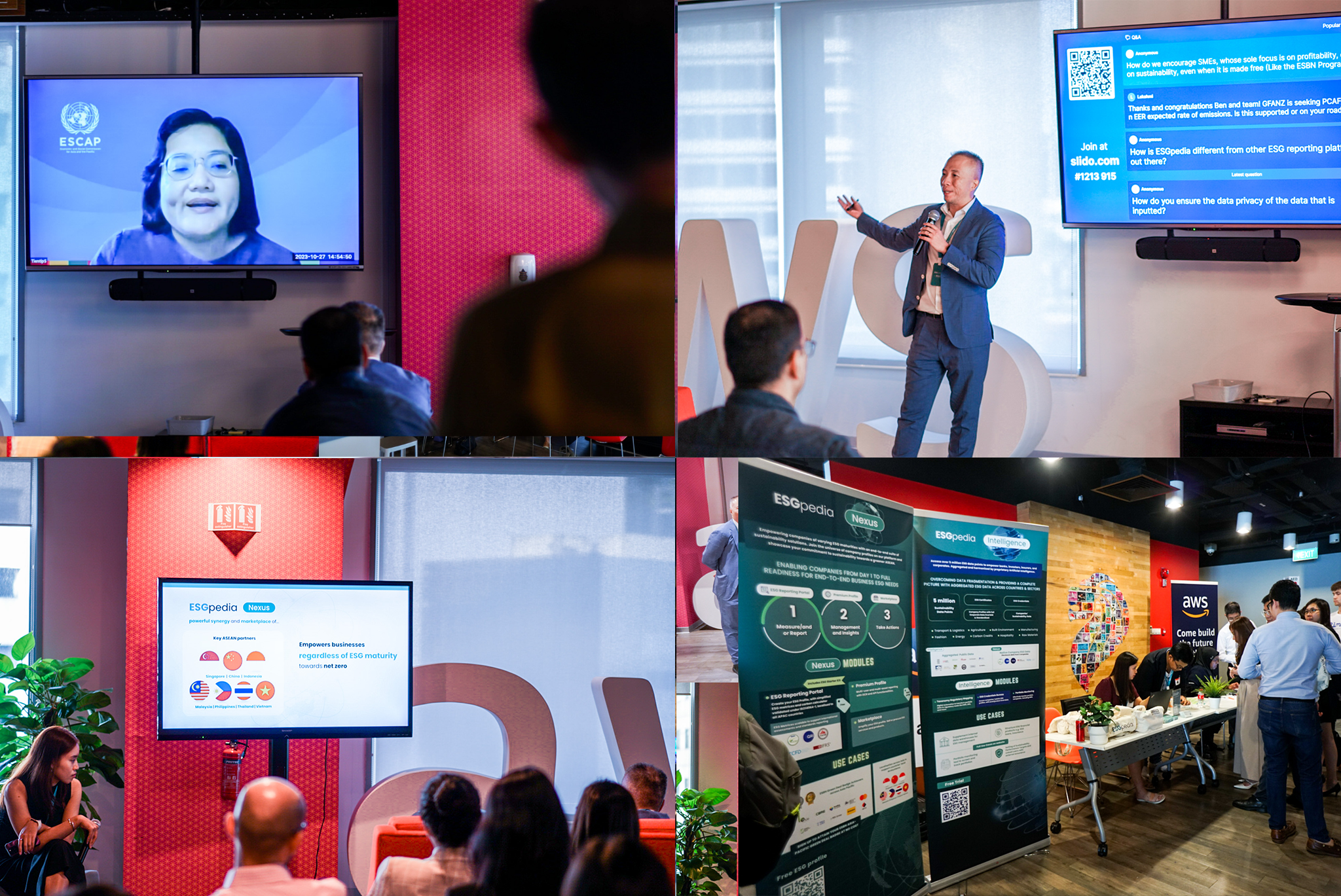
Opening address by Dr. Joey Tan, Head of Sustainability, ASEAN, AWS
 “We’ve been working very closely with STACS for the last few years, and we see STACS as a valued partner. In most of the challengers our customers face today, a direct measurement of scope 1 and scope 2 is by far the easiest problem to solve. Where the challenges come up are with indirect emissions, with value chains, with 15 categories.
“We’ve been working very closely with STACS for the last few years, and we see STACS as a valued partner. In most of the challengers our customers face today, a direct measurement of scope 1 and scope 2 is by far the easiest problem to solve. Where the challenges come up are with indirect emissions, with value chains, with 15 categories.
“Things have moved on from a year ago where when we spoke to customers out there they were just kicking the tires. They were saying, Hey Amazon/AWS, we are both your customers as well as your suppliers and partners. Could you help us along the journey of sustainability? Those conversations of those days focused primarily on data processes – how can I help you capture the right kind of data to achieve the goals you’re looking for. The easiest savings we helped our customers with over the last 12 months was to help them get to the level of accuracy.
“Today, if I were to make a lot of assumptions by approximating spend values and measurements, you get a base line that is fairly accurate based on spend data. But the moment you go down to the level of granularity, you realise that you could actually be greener than you thought. By doing so, your starting point is already ahead of where you started off.”
Watch Dr Tan’s comments in full here.
 “We are trying to serve Asia, not just Singapore, particularly as many Singapore companies have Asia-wide footprints anyway. Why is this important? Regulations are coming and have already come. From January onwards, ESRS (European Sustainability Reporting Standards) will be implemented and some companies will be in scope. Ultimately, 60,000 companies will be in scope over time. Household brands that you know, that we use on a daily basis, will be required to report and they will need the data from their suppliers.
“We are trying to serve Asia, not just Singapore, particularly as many Singapore companies have Asia-wide footprints anyway. Why is this important? Regulations are coming and have already come. From January onwards, ESRS (European Sustainability Reporting Standards) will be implemented and some companies will be in scope. Ultimately, 60,000 companies will be in scope over time. Household brands that you know, that we use on a daily basis, will be required to report and they will need the data from their suppliers.
“Without a doubt, Asia is the number one supply chain of the world. But without the ESRS, how about local regulations in Singapore, Malaysia, Thailand, and Philippines? All of them already have mandatory reporting requirements for listed companies. Some of them, like Singapore, have already extended it to non-listed companies. It is an inevitability. Even if you are not required, not regulated, you will still be required by your clients. This spillover still comes to you.
“We realise that most companies are not able to comply. This KPMG study released about two weeks ago said that 75 per cent of companies they interviewed – 700 companies with an average revenue of $15 billion every year (huge companies) – were not ready to comply with the new regulations. The reasons are very clear: these large companies typically lack sufficient data, particularly from APAC.”
Watch Ben’s comments in full here.
At the halfway point of this year’s showcase, we featured video testimonials from seven of our partners who have achieved silver and gold sustainability ratings and standards in their respective businesses.
Electricity Generating Authority of Thailand:
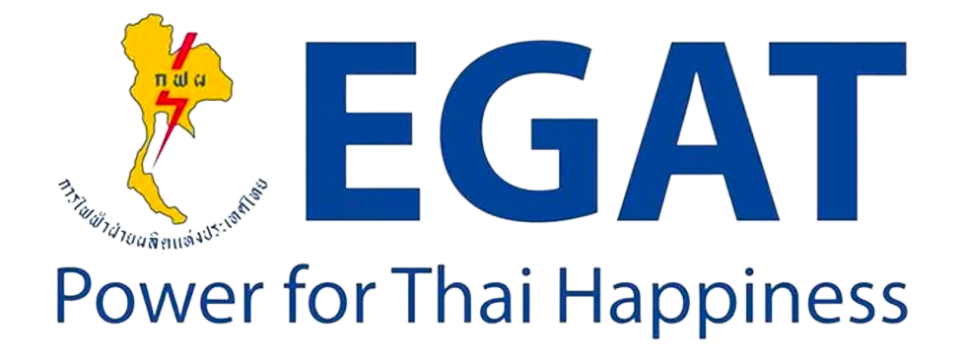 “EGAT declared its mission towards energy security and carbon neutrality by 2050. This not only benefits EGAT but also our partners, as we collectively assess our performance across five key pillars, facilitating a comprehensive self-evaluation process. This achievement marks just the beginning of our journey. EGAT, in collaboration with ESGpedia and our partners, aims to establish a solid robust ESG ecosystem.”
“EGAT declared its mission towards energy security and carbon neutrality by 2050. This not only benefits EGAT but also our partners, as we collectively assess our performance across five key pillars, facilitating a comprehensive self-evaluation process. This achievement marks just the beginning of our journey. EGAT, in collaboration with ESGpedia and our partners, aims to establish a solid robust ESG ecosystem.”
Funding Societies:

“Disclosing ESG data through digital platforms like ESGpedia lowers the barriers to sustainability as it provides a structured overview of what ESG topics are relevant for disclosure. Achieving the ESBN Green Deal badge strengthens our competitiveness and credibility in the market. We have an understanding of the disclosure requirements and insight that will help us when encouraging SMEs in our ecosystem to disclose ESG data.”
Citadines Berawa Beach Bali:

“Previously, we had to work on a manual checklist as well as experience from professional consultants externally engaged. With the platform now it has made it a lot easier for our corporate sustainability and reporting journey. We found the guidance notes that were provided in the framework itself being extremely helpful. It allowed our middle managers, who are working on the ground, to be able to put in the data points necessary in a very quick and complete fashion, allowing us to gain better visibility.”
Sign up and attain your free ESBN Green deal badge here: https://stacs.io/esbn-apac-green-deal-for-businesses/
View the full list of ESBN Green Deal Badge Achievers here: https://esgpedia.io/esbn-green-deal-badge-achievers/
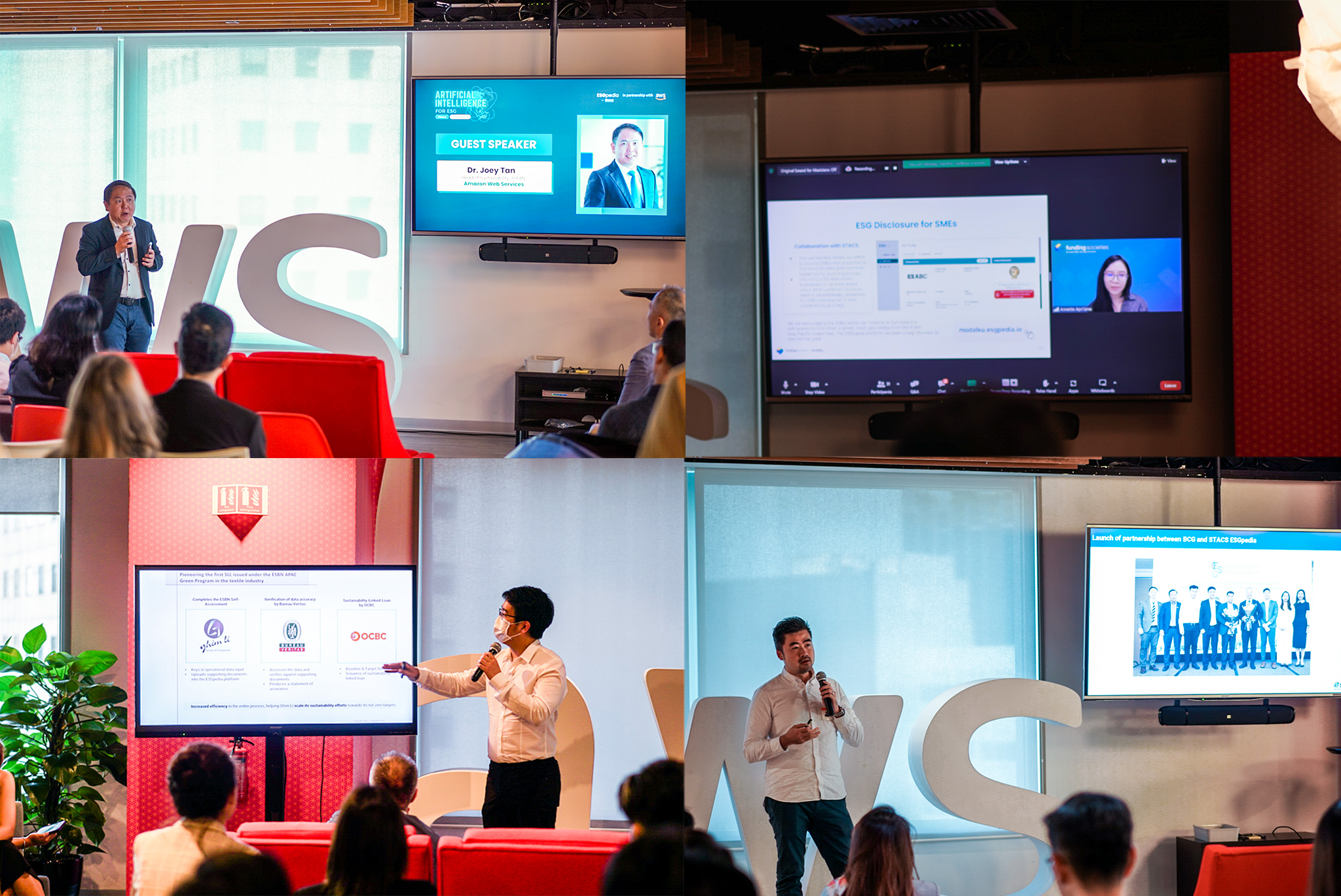
Streamlining Sustainability Linked Financing through ESBN Green Deal digital assessment by Gan Minghao, Executive VP Operation, Ghim Li
 “We started our sustainability journey in 2016 with many of our large retail customers in the US. Since then, we have been obtaining gold certificates and awards for the sustainability programmes we were on, and did pilot runs with them. In Malaysia, in our fabric mill, we have an RO (reverse osmosis) system. It was one of the examples of where we started our sustainability journey.
“We started our sustainability journey in 2016 with many of our large retail customers in the US. Since then, we have been obtaining gold certificates and awards for the sustainability programmes we were on, and did pilot runs with them. In Malaysia, in our fabric mill, we have an RO (reverse osmosis) system. It was one of the examples of where we started our sustainability journey.
“We recycle about 30 per cent of our water back to our production process, saving about 26,000 metric meter cubes a month of water. For waste management we implemented a 6S for sustain, sort, send in order, shine, safety, and standardise. We started our chemical detox in 2018 where we cleanse our fabric mill from all the harmful chemicals for the environment, it’s a restricted list by our US customers.
“We have been audited by many of our US customers and so have many certificates and different standards. Using STACS is very good so we can organise all these on their platform and create a profile that our customers can view in one shot.”
Watch Gan’s comments in full here.
Empowering Indonesian SMEs in their sustainability journey by Annette Aprilana, Sustainability and ESG Lead, Funding Societies
 “We have two main focuses in our sustainability team. We play a role of developing roadmaps and initiatives related to anything sustainability and ESG. The first part is integrating ESG into our core business. The second is helping to support SMEs in their own sustainability journeys… One of our main projects is implementing our environmental and social management system, and we’re doing this across our markets.
“We have two main focuses in our sustainability team. We play a role of developing roadmaps and initiatives related to anything sustainability and ESG. The first part is integrating ESG into our core business. The second is helping to support SMEs in their own sustainability journeys… One of our main projects is implementing our environmental and social management system, and we’re doing this across our markets.
“The ESMS is a set of procedures and processes that allow us as a financing and fintech company to assess borrowers from an environmental and social risk perspective, and not only from a financial risk perspective. Ben mentioned earlier that this has become more prevalent, especially as financial institutions are looking at risk from a more holistic point of view. We have our ESG risk assessment framework which is able to identify some of the elevated ESG risk topics per industry. This process is captured in our ESG policy as well.
“In implementing this, we are able to teach and train relevant team members, for example our sales and credit teams, to be introduced to ESG topics and risk… We’ve also created our internal ESG risk assessment guidance document, which has more detailed information on these topics, risk, and how they’re relevant to each industry. This means that when we receive an SME borrower, we’re able to assess them from an ESG lens… We’re rolling this out now in a phased approach in each of our markets.”
Watch Annette’s comments in full here.
Localisation across Asia to support countries’ local ecosystems and enhance carbon mitigation with RECs/carbon credits by Leonard Ng, Project Director, Bamboo Capital Group
 “ESG has always been the core of what we want to do and we believe in CSR. We have been doing quite a lot of activities in Vietnam, where we received an award recognising our ESG work in 2018. We own a construction firm and do quite a lot of development from real estate to offices across the whole of Vietnam. We do charity work like bridge building, beach cleaning up, scholarships for needy people, giving our masks, etc.
“ESG has always been the core of what we want to do and we believe in CSR. We have been doing quite a lot of activities in Vietnam, where we received an award recognising our ESG work in 2018. We own a construction firm and do quite a lot of development from real estate to offices across the whole of Vietnam. We do charity work like bridge building, beach cleaning up, scholarships for needy people, giving our masks, etc.
“Renewable is one of the key sectors that we are in, today we have about 200MW of operating solar in Vietnam across north to south. We are thankful that we are going into Vietnam with STACS because the government has announced that they want to do a carbon market. They are looking to do a pilot in 2025-28 when they will formalise a carbon market. So the question is how Vietnam can be in sync globally, because every country has their own form of carbon credits, etc.
“This is where STACS can come in handy in terms of how we report, because in Vietnam there are even different accounting standards compared to global scale. Recently, the partnership between Singapore and Vietnam helped us greatly in advancing our carbon market. In Vietnam, there is aggressive growth of renewable projects for wind and solar. Earlier this year, we partnered with STACS and we are hoping to bring the platform to more companies in Vietnam. A lot of them are not so clued in on how they can start this journey, they don’t really understand carbon credits and how reporting can be done.”
Watch Leonard’s comments in full here.

We thank all our speakers, friends, and partners who participated in this year’s ESGpedia Showcase at AWS and look forward to welcoming them, and many new faces hopefully, back next year!
In the meantime, if you would like to find out more about how STACS’s ESG data platform and solutions can support your business’s sustainability transition, create a free ESG profile here to get started or reach out to us for a free trial.
